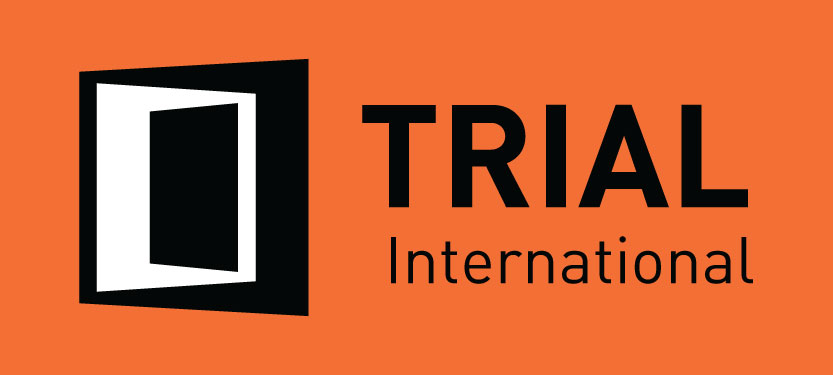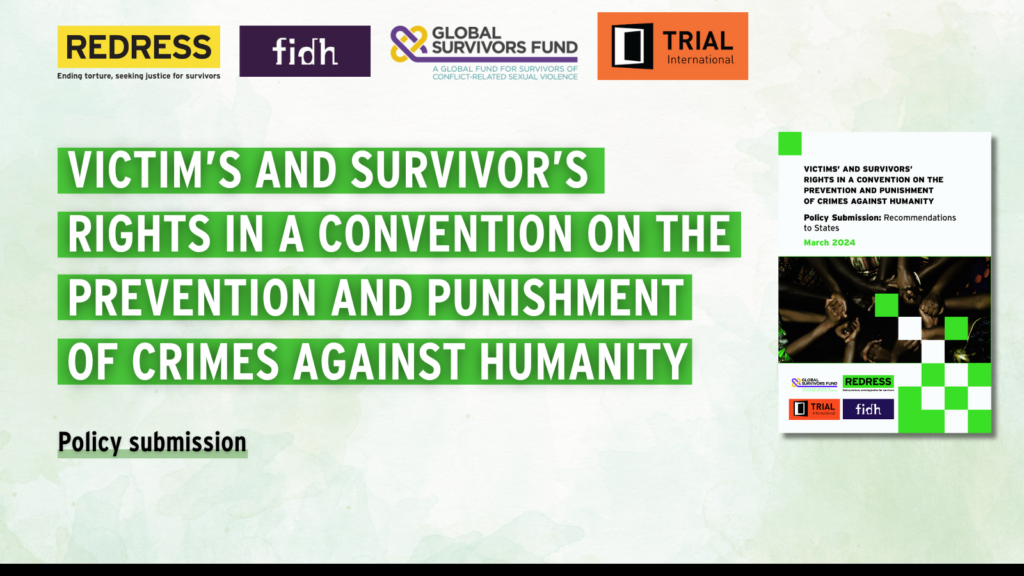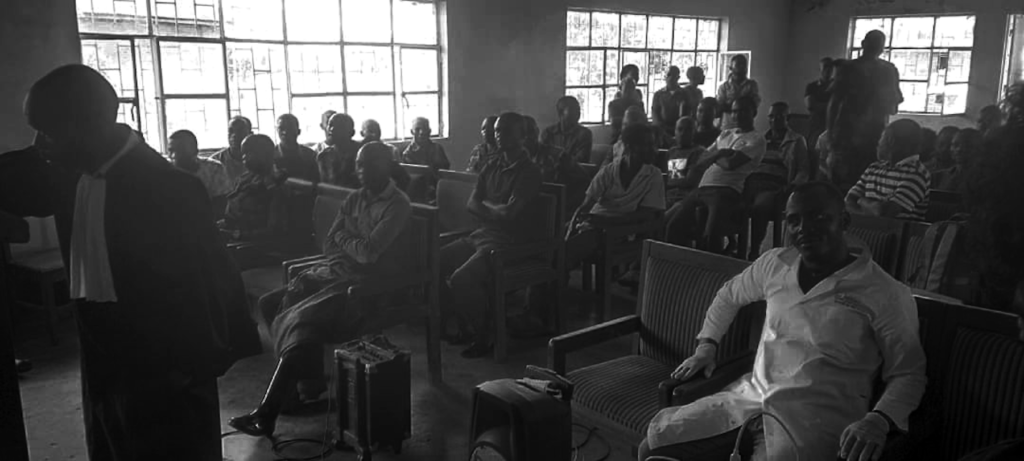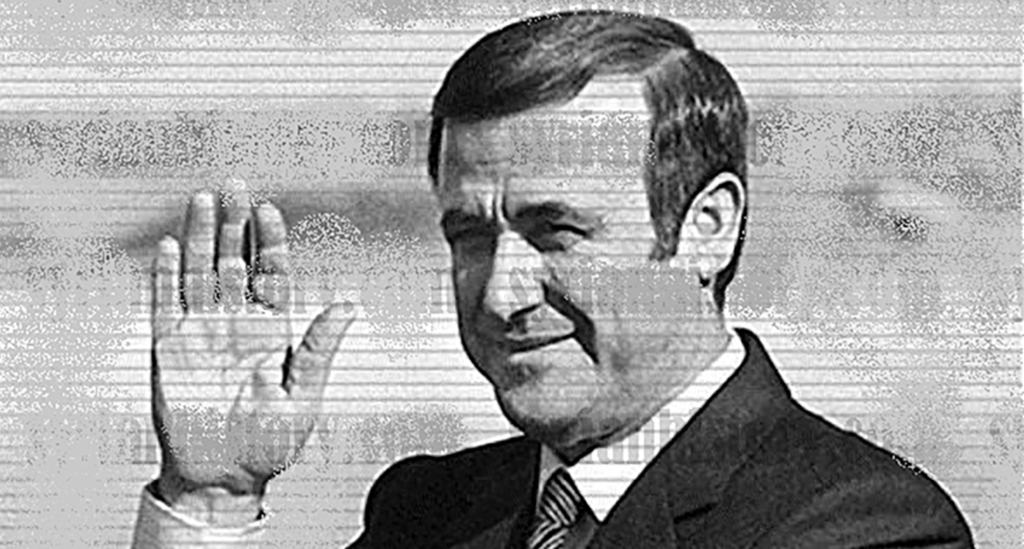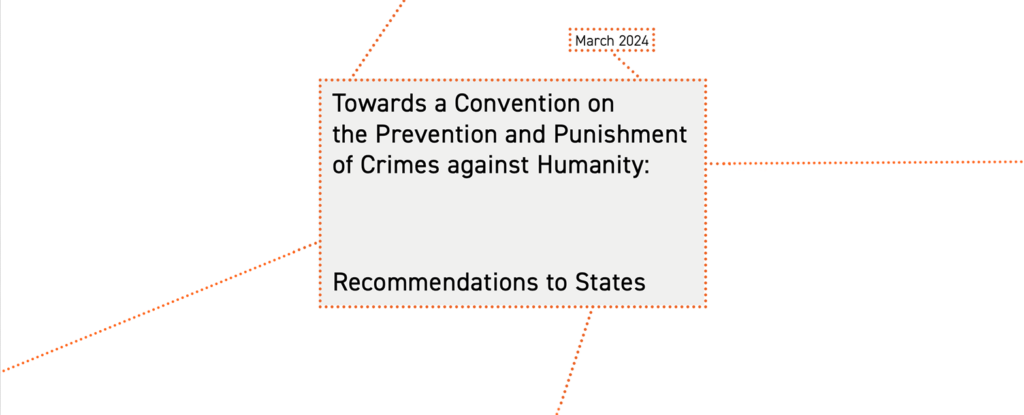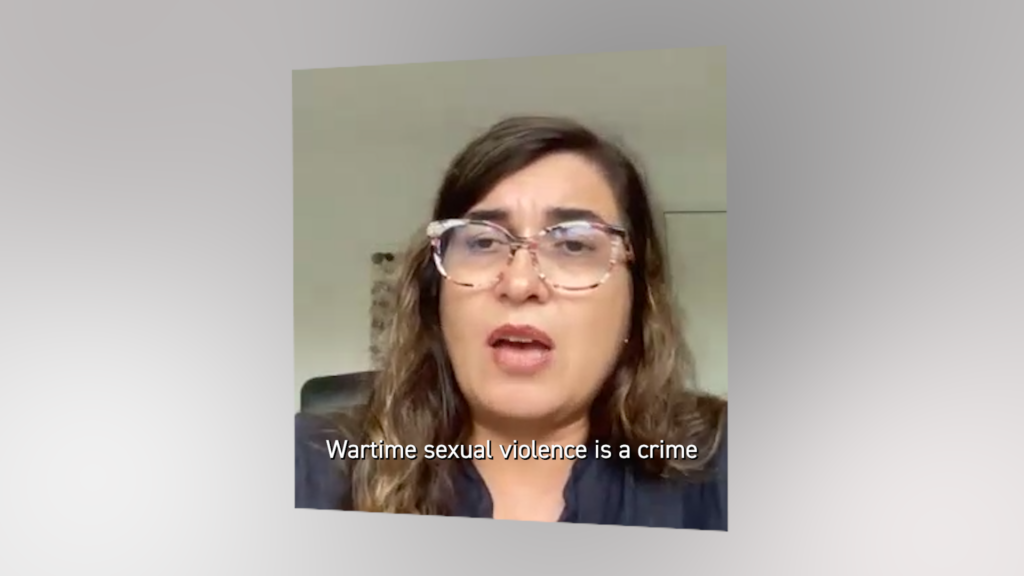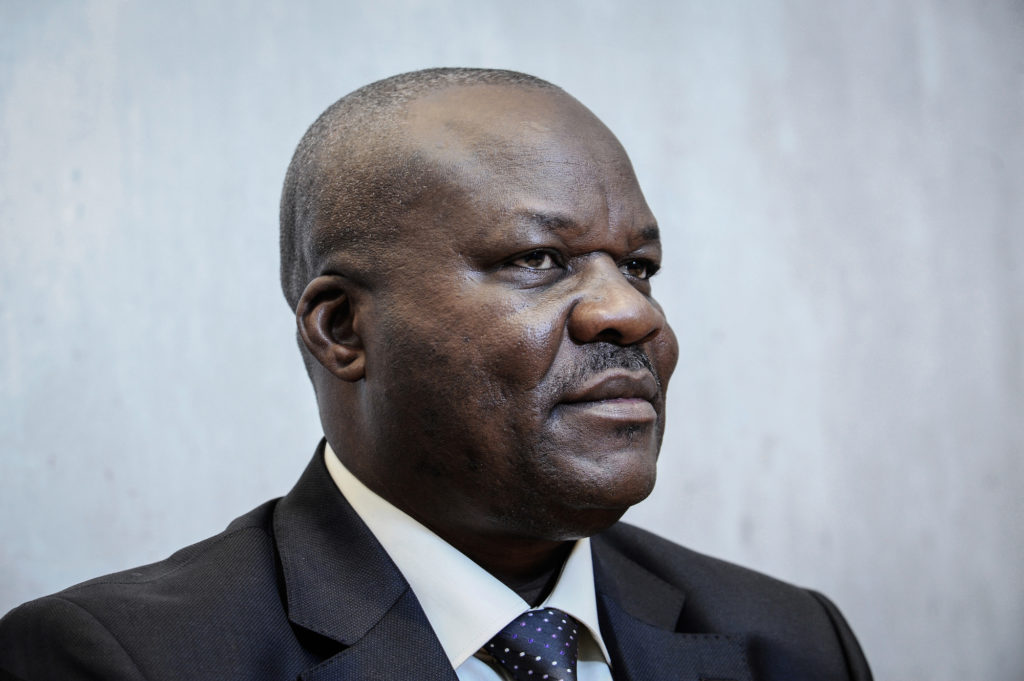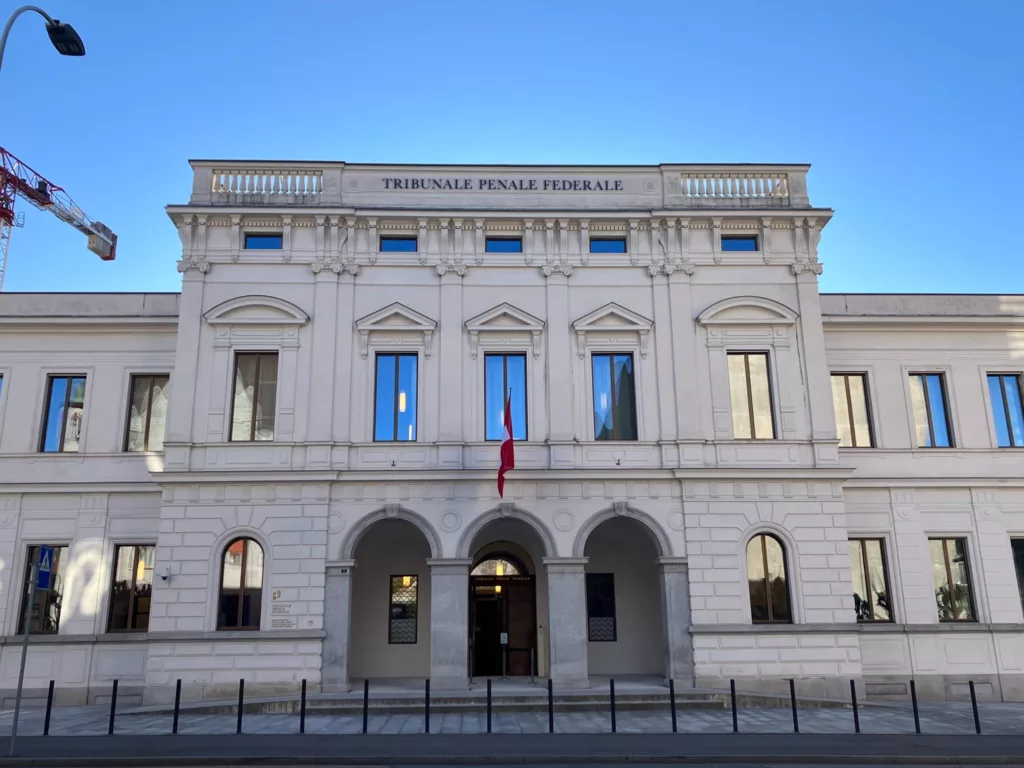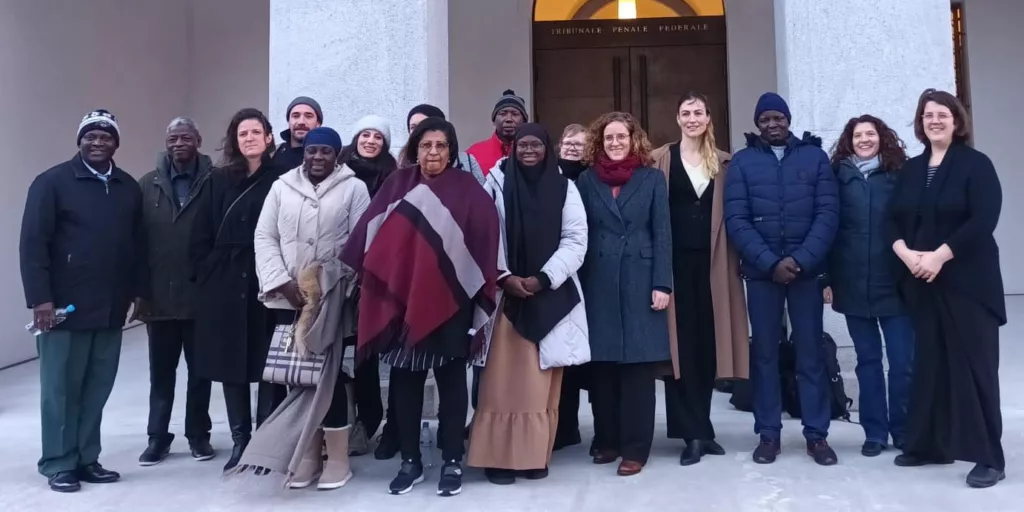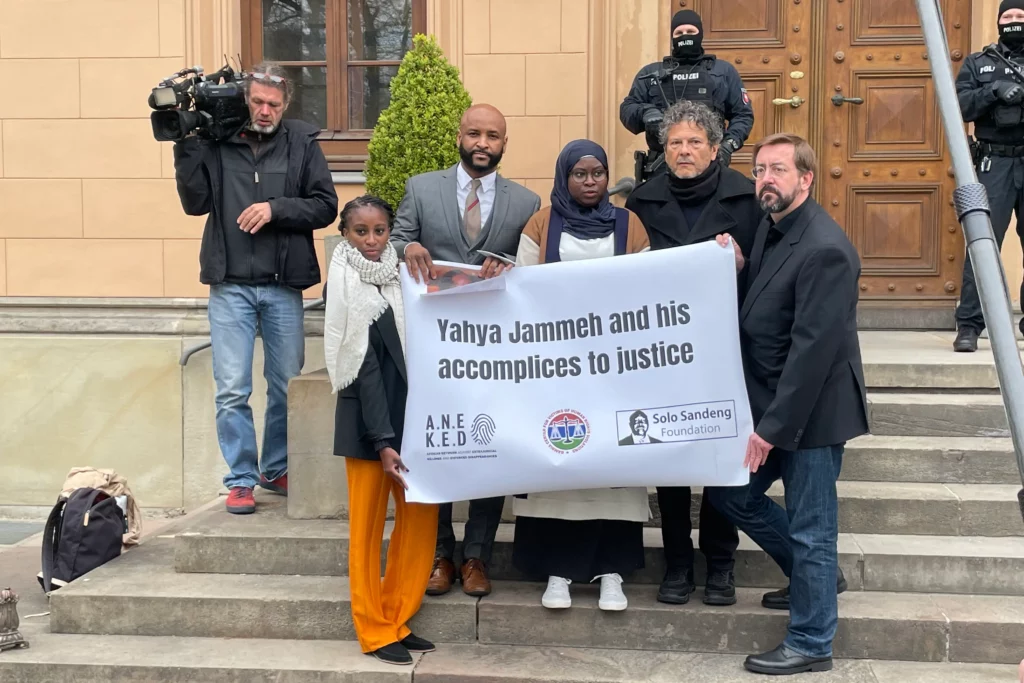The end of a long wait: Summary of the proceedings of the first week of the trial of Ousman Sonko
(8-12 January 2024, Federal Criminal Court, Bellinzona, Switzerland)
The trial of Ousman Sonko opened on 8 January 2024 before the Swiss Federal Criminal Court (FCC). A panel of three judges is examining the former Gambian Minister of Interior’s responsibility over the numerous crimes against humanity that he is accused of having committed between 2000 and 2016, under the regime of former President Yahya Jammeh.
During the three-weeks trial, Ousman Sonko will be represented by a defense team of four. Nine plaintiffs are heard over two weeks. They are represented by their lawyers and supported by TRIAL International, who filed the criminal denunciation against Ousman Sonko in 2017.
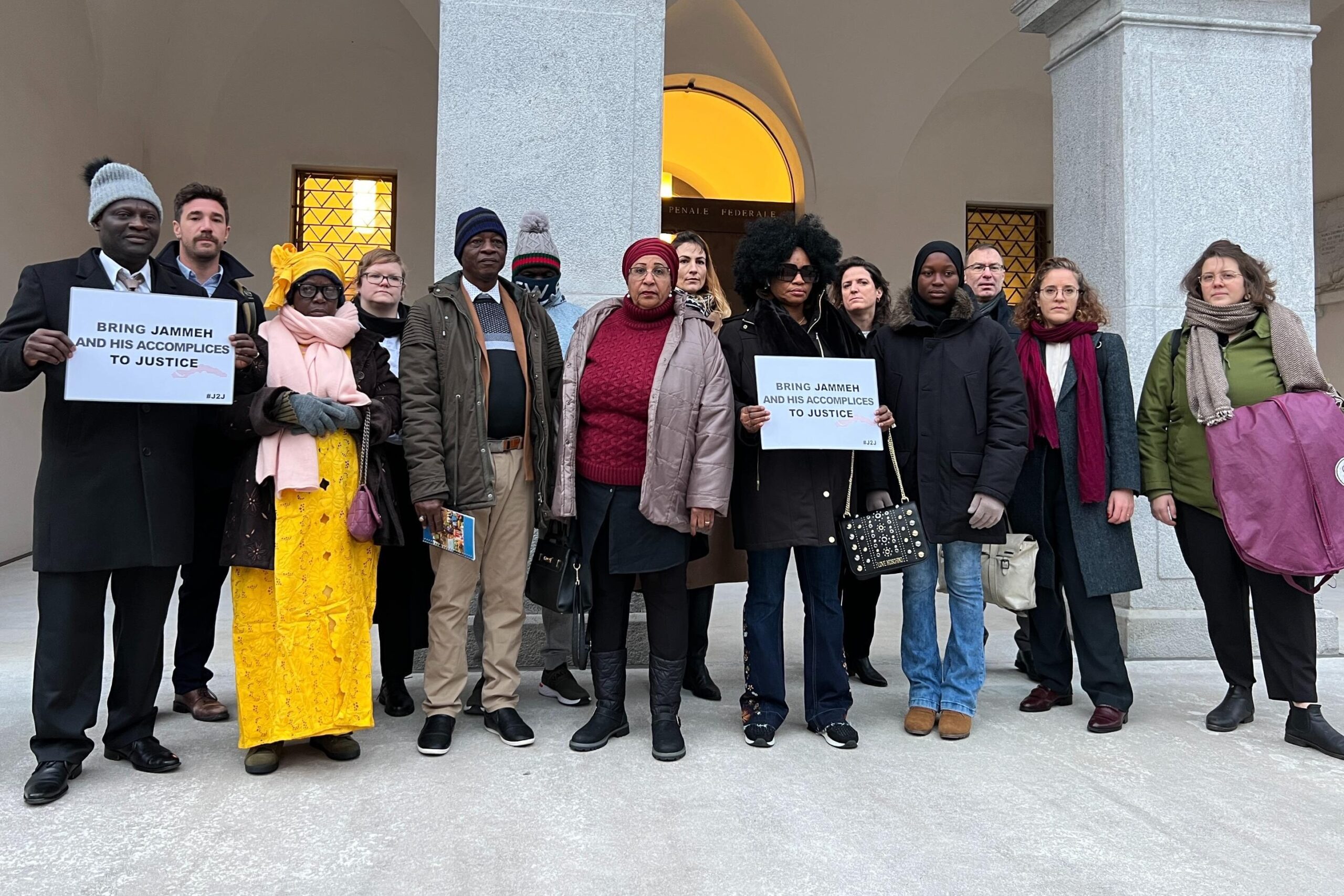
8 January 2024 – The trial begins
On the first day, the hearing touched upon procedural and organizational questions. Within this framework, the defense argued that Switzerland had no jurisdiction over the crimes that Ousman Sonko is accused of having committed between 2000 and 2006 and that these alleged crimes were time-barred. The defense team also requested for numerous evidence material to be removed from the casefile on procedural grounds.
As a response, the Federal Prosecutor and the plaintiffs’ lawyers recalled that the Swiss case law is in favor of the prosecution.
In Switzerland, “(…) a perpetrator can be prosecuted and punished for crimes against humanity committed before 2011 until the end of his or her life, regardless of the passage of time.” (Federal Prosecutor’s pleading of 8 January 2024)
In addition, the plaintiffs’ lawyers requested that the charges be examined as aggravated, considering the high number of persons affected and the particularly cruel nature of the facts to be judged.
Both parties requested for all of the proceedings to be translated in English.
9 January 2024 – Going forward with the case
The proceedings resumed with the Court ruling that the trial would first examine the substance and, once it has established whether crimes against humanity were committed or not, it will consider the parties’ arguments regarding its jurisdiction and the statute of limitations.
The Court then ruled that the challenged evidence material had been collected in compliance with the law by prosecuting authorities and that, as a result, the casefile would remain as it is.
Regarding the translation of the proceedings, the Court explained that the English interpretation would not be provided for the parts of the trial that it considers non-essential for the parties.
After those issues were clarified, the Court proceeded with the substance of the case.
As prescribed by law, the Court reminded Ousman Sonko of the accusations pending against him. He was then asked to answer questions on his personal situation. He stated that the seven years of pre-trial detention had been the worst time of his life, mentioning that his health deteriorated and that the financial situation of his family had worsened.
In an open statement, Ousman Sonko reaffirmed that he was not guilty of the crimes he is accused of. He assured that he has always been loyal to his country and served it as best as he could, trying to improve prison conditions and professionalize the work of security forces and police. He claimed to have no knowledge of any ill-treatment in the security wings of Gambian prisons.
Ousman Sonko then criticized Swiss authorities:
“Switzerland is not in a position to lecture anyone on human rights.” (Ousman Sonko – Open statement of 8 January 2024)
10 January 2024 – Examination of the 2000s charges
(murder of Almamo Manneh and multiple rapes as crimes against humanity)
“Ousman Sonko is being accused of having participated in the murder of Almamo Manneh, former member of the State Guards, in January 2000 and, of having sexually assaulted his widow between the years 2000 to 2002 as well as having tortured, raped and sequestrated her in 2005.” (Indictment filed against Ousman Sonko on 17 April 2023)
On the third day of the trial, Almamo Manneh’s widow was heard by the Court. Sonko was placed in a separate room, to avoid a direct confrontation with him during her interrogation. She explained how Sonko severely and repeatedly abused her. She noted that from the mid-1990s, it was hell for Gambians who opposed the Government. Following her testimony at the TRRC, she had been contacted by many women who had also been sexually assaulted but who were scared to report the assaults.
When questioned about Almamo Manneh’s murder, Sonko explained that he was bound by professional secrecy and could not comment further. Regarding the rape and torture allegations, he affirmed that he was not in the country at the time of the events, as he was travelling for a UN engagement and only came back once to The Gambia for a break. The Court informed the parties that it was waiting for the UN to confirm this information.
10-12 January 2024 – Examination of the March 2006 charges – continued
(acts of torture, false imprisonment and sexual violence committed as crimes against humanity)
“As part of an attempted coup d’état in March 2006, Ousman Sonko is being accused, as an accomplice of a group of perpetrators, of having tortured various people, including members of the army, politicians and journalists, of having illegally deprived them of their freedom, as well as of having committed a rape in Banjul, The Gambia.” (Indictment filed against Ousman Sonko on 17 April 2023)
During three days, three plaintiffs provided an account of the acts of torture they had been submitted to within the frame of an investigation conducted on an alleged coup attempt in March 2006.
Ousman Sonko contested all the charges brought against him in relation to these events. He will be heard at a later stage regarding these events.
The first plaintiff to address the Court recalled his arrest on 21 March 2006, when he was violently interrogated and submitted to acts of torture at the National Intelligence Agency (NIA) on several occasions. As a result, he still suffers from serious physical and mental after-effects. The plaintiff also recalled that the members of an investigation panel set up at the premises of the NIA – including Ousman Sonko – knew very well that people were being tortured within the frame of this investigation.
“At the time, the country was under extreme dictatorship. People were arrested and imprisoned without being brought before court. Others disappeared. People were living in constant fear.” (Plaintiff’s statement regarding the Gambian context, 10 January 2024)
The second plaintiff to give a statement explained that she was arrested on 24 March 2006 and detained, then brought to the premises of the NIA. She found herself in a room where many people – amongst whom Ousman Sonko and the former vice-director of the NIA – were sitting. She was interrogated on the attempted coup that was suspected to have taken place. During her presence at the NIA, she was raped, humiliated and tortured. Following these horrific events, she was put in jail, where she remained for several weeks – along with other people.
In October of the same year, she was arrested again at her home and imprisoned. Eventually, she was released.
The plaintiff mentioned the physical and mental impacts these acts had on her since then.
“The Gambian judicial system was accomplice to the government, within which judges were answering to the orders of the President.” (Plaintiff’s statement regarding the Gambian context, 11 January 2024)
The third plaintiff confirmed he had been kidnapped form the Parliament in March 2006. Taken to the NIA premises on several occasions, he had been questioned on his suspected role in the alleged coup attempt. He was submitted to acts of torture on several occasions and pressured to sign a statement. He suffered important physical and psychological consequences from the acts of torture he had endured and remains affected in his daily life ever since.
“I have been subjected to heinous crimes and humiliation that I never thought a man could do to another one!” (Plaintiff’ statement regarding the Gambian context, 11 January 2024)
>> This summary of the first week of the proceedings of the Ousman Sonko’s trial, lists the most important points discussed during the hearings. TRIAL International does its best to summarize as accurately as possible what was said. The organization cannot be held responsible for any errors or omissions. <<
